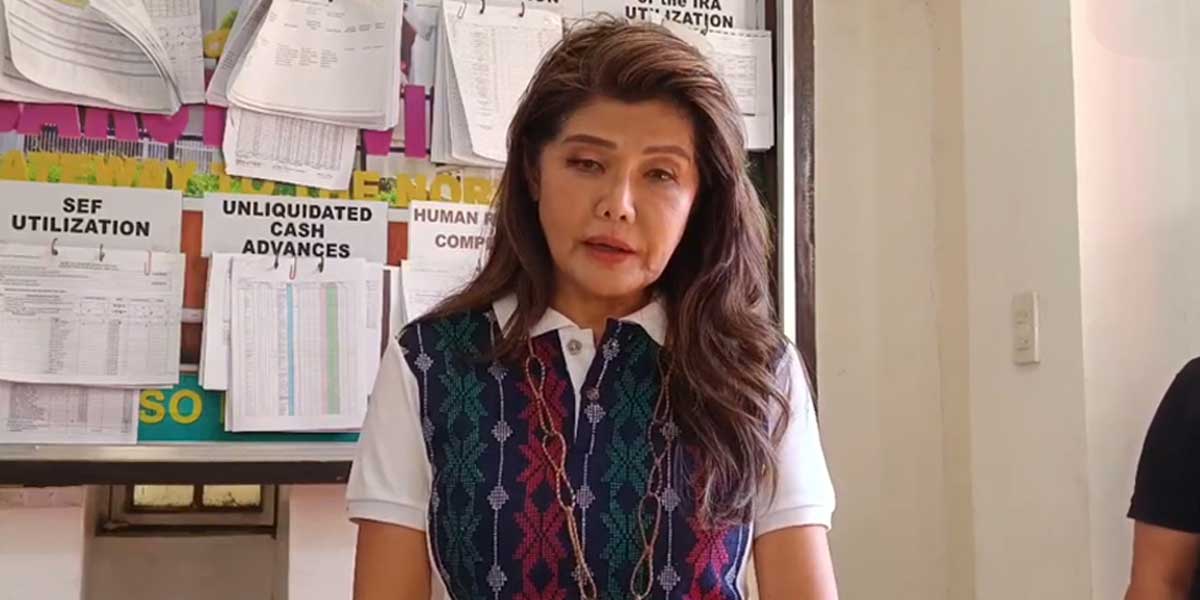By Alex P. Vidal
“This would be a much better world if more married couples were as deeply in love as they are in debt.”—Earl Wilson
OF all the not-so-earthshaking-but-head turner news that spread around the globe these past weeks, none was more shimmering and toffee-nosed as the Johnny Depp-Amber Heard l’affaire.
News of the Virginia trial of Depp’s $50 million defamation suit against his ex-wife Heard, for awhile, had been stepped aside to pave the way for the gruesome killings by Russian soldiers of Ukrainian civilians, the never-ending saga of Roe V. Wade, the impending return of the Marcoses to power in the Philippines, the baby formula shortage, among other hot issues.
Now, it’s the talk of the globe, so to speak; it’s hard to ignore this courtroom melee that erupted more than five years after the controversial couple’s breakup.
The star of the Pirates of the Caribbean, who arguably is more popular than Vladimir Putin and sometimes more hot-tempered than Will Smith, is mired in the most scandalous publicity that will either make or break him.
What have we Heard, so far, and how Depp do we know about the case that is now on its final stage?
Let’s begin with Depp’s legal team, which had argued that Heard ruined the actor’s reputation by “choosing to lie about him for her own personal benefit.”
Heard had written an essay for the Washington Post back in 2018 in which she described herself as a “public figure representing domestic abuse.”
The article never mentioned Depp by name, but the actor’s attorneys previously said in court documents that his ex-wife’s op-ed was all part of an “elaborate hoax.”
-o0o-
Depp also claimed in court documents that Heard concocted her story in the hopes of generating “positive publicity” and to “advance her career.”
The Aquaman Mera actress made a rare statement on Instagram announcing a break from social media days before the trial unwrapped. “Johnny is suing me for an op-ed I wrote in the Washington Post, in which I recounted my experience of violence and domestic abuse,” she wrote on April 9. “I wrote about the price women pay for speaking out against men in power. I continue to pay that price, but hopefully when this case concludes, I can move on and so can Johnny.”
Writers Mike Vulpo, Lindsay Weinberg, and Gabrielle Chung narrated that on May 23, producer and entertainment industry consultant Kathryn Arnold testified that Depp’s career was already in decline before Heard’s 2018 op-ed piece for The Washington Post.
According to the three writers, Arnold had said past movies starring Depp including Mortdecai (2015), Alice Through the Looking Glass (2016) and The Lone Ranger (2013) underperformed at the box office.
She also testified that reports of Depp’s poor work habits made it
harder for Hollywood to financially back him.
“We talked about the erratic behavior, the tardiness, the drugs and alcohol abuse,” Arnold testified. “And the lawsuits have had a really big impact, not just this lawsuit but previous lawsuits that Mr. Depp has been involved with because there’s a lot of publicity around anything he does.”
Arnold also referenced a Hollywood Reporter article, published before Heard’s Post piece, that said Disney was rethinking the future of Depp’s Pirates of the Caribbean franchise after disappointing returns on the fifth film.
-o0o-
During her testimony, Arnold said that movie, TV and endorsement deals for Heard dried up after Adam Waldman, Depp’s ex attorney, publicly called her abuse accusations against Depp “false” and a “hoax.”
Arnold predicted that Heard could be at the same level as Ana de Armas, Zendaya and Gal Gadot following her breakout superhero role in 2018’s Aquaman. “It would have been very reasonable to believe her career would have been on an upward trajectory of those other actors” if not for the hoax allegations, Arnold testified. “It’s very likely Ms.Heard should have earned $45 to $50 million.”
Depp’s team, however, pushed back on cross-examination arguing that Gadot was in Fast & Furious movies before she played Wonder Woman and Zendaya was a Disney Channel star before her career took off.
Psychiatrist says Depp showed Signs of intimate partner violence. Psychiatrist Dr. David R. Spiegel testified for Heard’s defense on May 23 that Depp showed signs of substance misuse and intimate partner violence.
“In my opinion,” the Eastern Virginia Medical School professor said in court, “Mr. Depp has behaviors that are consistent with both someone who has a substance use disorder as well as consistent behaviors with someone who is a perpetrator of intimate partner violence.”
Depp’s legal team argued that Dr. Spiegel may be unqualified to testify on intimate partner violence because none of his published works specifically have the topic in the titles.
According to the Center for Disease Control and Prevention, intimate partner violence is defined as abuse or aggression that occurs in a romantic relationship.
-o0o-
Alex Finnis of People explained a scenario if Depp wins. The jury will decide whether, on the balance of probability, Heard did defame Depp in the 2018 Washington Post article.
If they decide she did, Depp will win the trial and Heard will be ordered to pay him damages. He is seeking $50 M in compensation, but the jury may recommend he is awarded more or less than this amount.
Heard will not go to prison even if the jury decides in Depp’s favor, Finnis stressed.
“This is a civil trial, not a criminal case. Neither Heard nor Depp are being tried on any criminal charges,” he added.
A civil case is a court case in which a person or entity (the plaintiff) can find another person or entity (the defendant) liable for some type of harm or wrongful act. When someone is sued, this is a civil case.
If the plaintiff is successful, they will normally receive some form of compensation from the defendant.
A civil lawsuit can be brought over anything from a contract dispute or a residential eviction to injuries sustained in a car accident, or countless other harms or disputes.
Civil cases are intended to compensate the person who is harmed rather than punish the defendant. If the defendant loses a civil case they are not convicted of a crime, as they would be in a criminal case, and they do not face prison – even if they are found found liable for conduct which amounts to a criminal act.
The burden of proof is also lighter in a civil case than a criminal case. In a criminal case the defendant’s guilt must be proven “beyond reasonable doubt”, whereas in a civil case the jury simply has to decide which side of the dispute they believe to be more likely.
(The author, who is now based in New York City, used to be the editor of two local dailies in Iloilo.—Ed)




















